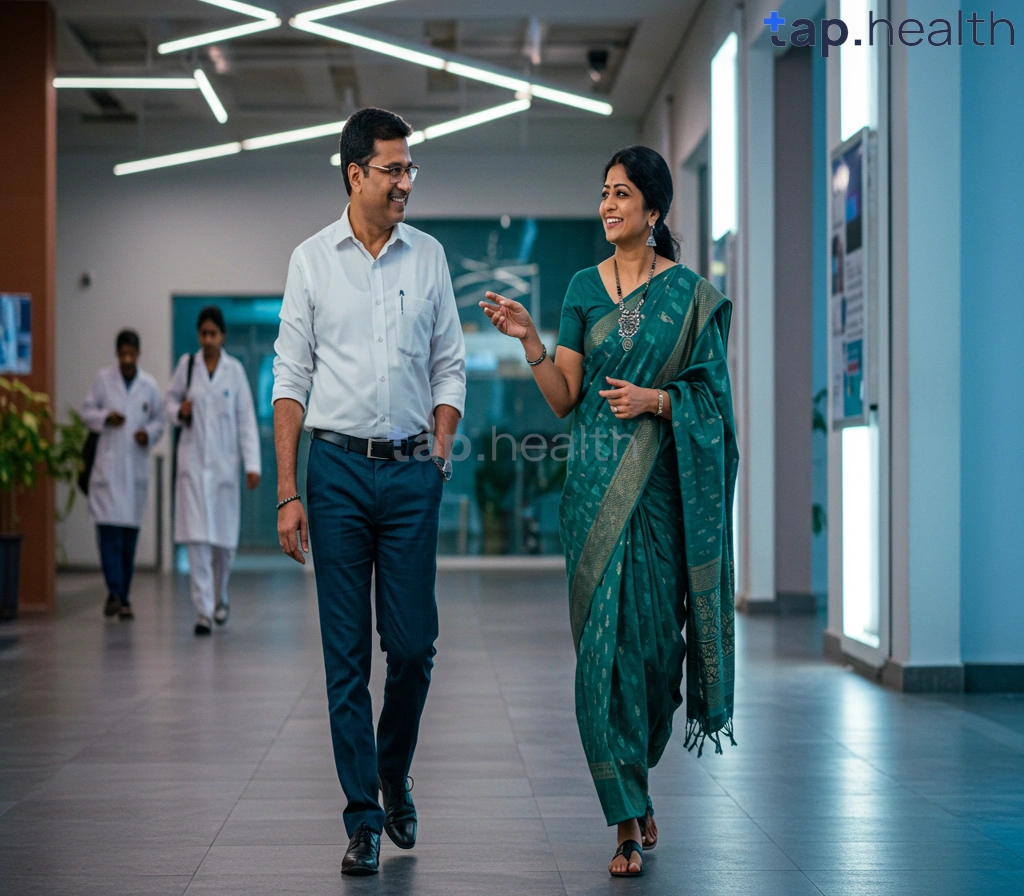Table of Contents
- Finding the Best Endocrinologist for Type 1 Diabetes
- Building Your Ideal Type 1 Diabetes Care Team
- Essential Questions to Ask Your Type 1 Diabetes Doctor
- Guide to Navigating the Type 1 Diabetes Healthcare System
- Top Tips for Effective Communication with Your Diabetes Team
- Frequently Asked Questions
- References
Living with type 1 diabetes requires a dedicated and knowledgeable medical team, and finding the right type 1 diabetes doctor and care team is crucial for managing your health effectively. This isn’t just about finding *a* doctor; it’s about building a partnership with healthcare professionals who understand your specific needs and can support you in achieving your health goals. Navigating this process can feel overwhelming, but we’re here to help! In this blog post, we’ll explore key factors to consider when searching for the best medical support, from endocrinologists and diabetes educators to other crucial members of your care team. Let’s get started on your journey to finding the perfect fit.
Finding the Best Endocrinologist for Type 1 Diabetes
Managing type 1 diabetes is a marathon, not a sprint, and having the right team is crucial. With millions of Americans—and many more globally—navigating this condition, finding an endocrinologist who truly understands your needs is paramount. This is especially true in places like India and other tropical countries where access to specialized care might be more challenging. Understanding the genetic piece can be helpful too; check out our article on Is Type 1 Diabetes Genetic? for more info.
Key Considerations for Choosing an Endocrinologist
So, how do you find the right endocrinologist? Here’s what to consider:
- Experience: Look for someone with a proven track record in managing both adult and pediatric type 1 diabetes. Experience with diverse populations, especially those in hot and humid climates, is a plus.
- Expertise: They should be well-versed in managing common complications, especially those prevalent in your region. Think about nutritional needs specific to your diet – a doctor familiar with local food staples is ideal.
- Reviews & Recommendations: Word-of-mouth is gold! Seek out patient reviews and recommendations, particularly from those within your community. Their firsthand experiences offer invaluable insights.
- Understanding of the Disease: A good endocrinologist grasps how type 1 diabetes impacts the body’s systems. Our article, How Does Type 1 Diabetes Affect Homeostasis?, provides a deeper dive.
Building Your Diabetes Care Team
Remember, it’s not just about the endocrinologist. A strong support system is vital. Consider including:
- Registered Dietitian: A specialist who can help you craft a meal plan that works with your lifestyle and your local food scene.
- Certified Diabetes Educator (CDE): They provide personalized guidance and support, answering your questions and offering practical tips.
- Mental Health Professional: Living with a chronic illness has emotional ups and downs. A therapist can provide invaluable support in navigating these challenges.
Taking Action in Indian and Tropical Countries
For those in India and other tropical regions, leverage resources like online support groups and local diabetes associations. These communities offer incredible support and often know the best local specialists. Don’t hesitate to contact several endocrinologists for consultations – finding the right fit is key to proactive, healthy management. Remember, a proactive approach is key to thriving with type 1 diabetes, no matter where you are.
Building Your Ideal Type 1 Diabetes Care Team
Managing type 1 diabetes, especially in hot, humid climates like those common across India and other tropical regions, demands a strong, supportive healthcare team. With over 1.2 million children and adolescents worldwide living with type 1 diabetes, finding the right specialists is crucial for long-term well-being. Building this team proactively isn’t just helpful—it’s essential.
Finding the Right Endocrinologist
Your endocrinologist is your diabetes quarterback. You need someone experienced, ideally familiar with the unique challenges of managing type 1 diabetes in tropical climates—things like the heightened risk of dehydration and infections. Don’t hesitate to ask about their experience with insulin pump therapy, continuous glucose monitoring (CGM) systems, and, critically, their approach to managing diabetic ketoacidosis (DKA), a serious complication. A good endocrinologist will be a partner in your care, not just a prescriber.
Complementary Healthcare Professionals
Think of your care team as a well-oiled machine. Beyond your endocrinologist, a registered dietitian specializing in diabetes is invaluable. They can help create a meal plan that works for you, considering your cultural background and local food availability. A certified diabetes educator provides crucial support and training, empowering you to effectively manage your condition daily. Regular check-ups with a podiatrist are also essential for preventing foot problems, a common but serious concern for people with diabetes. For parents of children with Type 1 Diabetes, this guide offers invaluable support.
Building a Supportive Network
Effective diabetes management isn’t solely about medical professionals; it’s about building a supportive community. Connecting with local diabetes support groups or online communities provides a lifeline—a place to share experiences and learn from others navigating similar challenges in similar climates. In India and tropical countries, proactive management is even more vital due to the impact of climate and lifestyle. Finding a doctor and team who understand these nuances can make all the difference. Finally, establishing consistent routines, like those outlined in this article on daily habits, can significantly improve your health.
Essential Questions to Ask Your Type 1 Diabetes Doctor
Navigating type 1 diabetes, especially in India’s hot and humid climate, demands a fantastic healthcare team. Finding the right doctor is key – poorly managed diabetes can lead to serious complications. Think of it like this: a slightly off-kilter engine might still run, but it’ll eventually break down. Similarly, high HbA1c levels (above 9%—reported in over 30% of Indian patients!) signal trouble brewing. So, choosing wisely is paramount. Before you even think about scheduling an appointment, understand the difference between Type 1 and Type 2 diabetes – it’s crucial you receive the correct care.
Understanding Your Doctor’s Approach
Don’t just settle for any doctor. Ask about their experience with Type 1, especially in tropical climates. Heat and dehydration can worsen complications like diabetic ketoacidosis (DKA), so experience in managing this is essential. Also, discuss insulin access in your region—are there supply chain issues or cost concerns they can help navigate? Finding a doctor who anticipates these challenges is crucial.
Treatment and Lifestyle Management
Discuss insulin therapy options – what flexibility do they offer? A rigid plan might work for some, but not everyone’s life fits neatly into a box. They should consider your lifestyle when creating a personalized approach to your diet. What foods are readily available and affordable in your area? Indian cuisine offers a wide range of options, but ensuring healthy choices are practical is important. Climate also affects blood sugar; how will they help you manage fluctuations through hydration and medication adjustments? Regular checkups and monitoring to maintain a healthy HbA1c are essential – discuss their approach to these.
Building a Comprehensive Care Team
Finally, how does your doctor work with a wider diabetes team? Diabetes educators, dietitians, and podiatrists are vital for holistic care. Access to specialists varies in India—clarify their network and resources. A collaborative approach ensures consistent and comprehensive care. Remember, both types of diabetes are serious, but understanding Type 1’s nuances is critical. For more on comparing the two types, check out this helpful article. Finding the right doctor is your first step towards effectively managing Type 1 diabetes and living a healthier life.
Guide to Navigating the Type 1 Diabetes Healthcare System
Finding the Right Endocrinologist
Living with Type 1 diabetes, especially in India and other tropical countries, demands a strong support system. Your first crucial step? Finding a fantastic endocrinologist. Think about their experience – especially if you’re managing a child’s diabetes – their location, and their reputation. Ask around! Word-of-mouth recommendations are gold. Online reviews can also help you narrow down your options. This isn’t just about convenience; it’s about proactive health.
Did you know that a shocking 50% of diabetes cases globally go undiagnosed? (International Diabetes Federation) Early diagnosis is truly life-changing.
Building Your Diabetes Care Team
Your endocrinologist is just the beginning. Picture your diabetes care team as your personal Avengers: a dedicated crew fighting for your well-being. A registered dietitian specializing in diabetes can help you create a meal plan that works with your lifestyle and local food culture, not against it. A certified diabetes educator (CDE) is your essential training partner for blood sugar monitoring, insulin management, and avoiding complications.
Depending on your needs, you might also add a podiatrist (foot care is crucial!), an ophthalmologist (for regular eye checks), and potentially other specialists. As you navigate life, your needs will evolve. For insights on managing diabetes as you age, check out our guide: Managing Diabetes as You Age: Challenges and Solutions.
Accessing Resources and Support
Access to specialized care can be a hurdle in some parts of India and tropical regions. Don’t let that discourage you. Seek out local diabetes support groups – they’re invaluable for sharing experiences and finding strength in community. Many hospitals have dedicated diabetes clinics, offering structured programs and expert guidance. And don’t underestimate the power of online resources! Numerous websites and organizations offer region-specific diabetes education programs.
Remember: consistent engagement with your team and proactive management significantly improves your quality of life. It’s an ongoing journey, but with the right support, it’s entirely manageable. Planning a trip? We’ve got you covered: Traveling with Diabetes: Essential Tips for a Safe & Healthy Journey.
Top Tips for Effective Communication with Your Diabetes Team
Managing type 1 diabetes, especially in the diverse climates of India and tropical countries, is a team effort. A strong partnership with your healthcare team is crucial for optimal health, and effective communication is the cornerstone of that partnership. Think about it – 61% of people with diabetes are between 20 and 64 years old, balancing work, family, and their condition. Clear communication keeps everyone on the same page.
Prepare Before Appointments
Before your appointment, jot down everything: questions, concerns, even that nagging feeling that something’s off. Include your recent blood glucose readings—those numbers tell a story. Also note any lifestyle shifts: Did you start a new exercise routine? Travel to a hotter, more humid area? In India and tropical regions, heat and humidity can really mess with your blood sugar. Sharing these specifics helps your doctor tailor advice to your life.
Active Listening and Questioning
During your appointment, actively listen. It’s easy to zone out, but try to really hear what your doctor is saying. Don’t be shy about asking for clarification – it’s your health, and understanding your treatment plan is key. This is especially true with managing medication in hotter climates – the impact might be different than what you’d expect in cooler areas.
Maintain a Detailed Record
Keeping a detailed log is like having a personal diabetes detective. Note your blood glucose levels, medications, and anything significant—a late-night snack, a particularly stressful day, even a change in weather. This data gives your doctor a clearer picture, allowing for more informed adjustments to your care. Think of it as giving your doctor the best possible clues to help you manage your diabetes effectively. This is particularly important in tropical countries where environmental factors can heavily influence blood sugar. For more tips, check out 10 Proven Tips to Effectively Manage Diabetes | Simple Guide.
Follow Up
Don’t wait until your next appointment if something’s worrying you. Reach out to your team; prompt communication prevents small problems from becoming big ones. Especially in areas with varied healthcare access, being proactive is vital. Learning more about effective strategies can make a huge difference; check out 10 Proven Tips for Effective Diabetes Management for more insights.
Frequently Asked Questions on Finding the Right Type 1 Diabetes Doctor and Care Team
Q1. How do I find an endocrinologist experienced in managing type 1 diabetes, especially in tropical climates?
Look for an endocrinologist with a proven track record in managing both adult and pediatric type 1 diabetes. Prioritize those with experience in diverse populations and hot, humid climates. Check online reviews and seek recommendations from others in your community.
Q2. What other healthcare professionals should be part of my type 1 diabetes care team?
Beyond your endocrinologist, a registered dietitian specializing in diabetes can help with meal planning. A certified diabetes educator (CDE) provides support and training. A mental health professional can offer emotional support, and a podiatrist is crucial for foot care.
Q3. What key questions should I ask potential endocrinologists during a consultation?
Inquire about their experience with type 1 diabetes in tropical climates, their approach to managing diabetic ketoacidosis (DKA), insulin therapy options, and their collaboration with other healthcare professionals. Discuss how they will tailor your treatment plan to your lifestyle and the availability of food and resources in your area.
Q4. How can I access support and resources for managing type 1 diabetes in India or other tropical countries?
Leverage online support groups and local diabetes associations to connect with others and find local specialists. Many hospitals have dedicated diabetes clinics. Utilize online resources and regional diabetes education programs.
Q5. What are the most effective communication strategies for interacting with my diabetes care team?
Before appointments, note down all questions, concerns, recent blood glucose readings, and lifestyle changes. During appointments, actively listen and ask clarifying questions. Maintain a detailed log of your blood glucose levels, medications, and other relevant information. Communicate promptly with your team if any issues arise.
References
- A Practical Guide to Integrated Type 2 Diabetes Care: https://www.hse.ie/eng/services/list/2/primarycare/east-coast-diabetes-service/management-of-type-2-diabetes/diabetes-and-pregnancy/icgp-guide-to-integrated-type-2.pdf
- Your Guide to Diabetes: Type 1 and Type 2: https://www.niddk.nih.gov/-/media/Files/Diabetes/YourGuide2Diabetes_508.pdf





